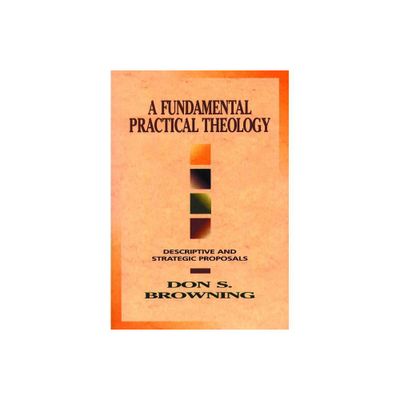Home
Conventional and Ultimate Truth: A Key for Fundamental Theology
Loading Inventory...
Barnes and Noble
Conventional and Ultimate Truth: A Key for Fundamental Theology
Current price: $40.00


Barnes and Noble
Conventional and Ultimate Truth: A Key for Fundamental Theology
Current price: $40.00
Loading Inventory...
Size: Paperback
*Product Information may vary - to confirm product availability, pricing, and additional information please contact Barnes and Noble
In
Conventional and Ultimate Truth
, Joseph Stephen O'Leary completes his trilogy on contemporary fundamental theology, which began with the volumes
Questioning Back
(1985) and
Religious Pluralism and Christian Truth
(1996). Common to all three works are dialogues with European philosophers Martin Heidegger, Jacques Derrida, G. W. F. Hegel, and the Madhyamaka school of Buddhism. In the current volume, O'Leary deals with the nature of theological rationality today, recommending the practice of reflective judgment, as opposed to systematic determinative judgment.
Inspired by the Buddhist notion of conventional truth, O'Leary claims that if we fully accept the fragility and conventionality of religious language, we can find a secure basis for a critical, reflective theology. This proposal is fleshed out in a dialogue with classical negative theology and with the implications of twentieth-century art and literature for religious epistemology. Embracing conventionality does not mean that the dimension of ultimacy is lost. The two are intimately conjoined in the Buddhist two-truths doctrine. Revisiting traditional sites of theological ultimacy, such as the authority of scripture and Christian dogma and the appeal to religious experience, O'Leary argues that we do justice to them only when we fully accept the conventionality of their historical articulation. By relating these traditions of thought to one another, O'Leary produces a new model for contemporary fundamental theology, one that will positively refocus and revitalize the field.
Conventional and Ultimate Truth
, Joseph Stephen O'Leary completes his trilogy on contemporary fundamental theology, which began with the volumes
Questioning Back
(1985) and
Religious Pluralism and Christian Truth
(1996). Common to all three works are dialogues with European philosophers Martin Heidegger, Jacques Derrida, G. W. F. Hegel, and the Madhyamaka school of Buddhism. In the current volume, O'Leary deals with the nature of theological rationality today, recommending the practice of reflective judgment, as opposed to systematic determinative judgment.
Inspired by the Buddhist notion of conventional truth, O'Leary claims that if we fully accept the fragility and conventionality of religious language, we can find a secure basis for a critical, reflective theology. This proposal is fleshed out in a dialogue with classical negative theology and with the implications of twentieth-century art and literature for religious epistemology. Embracing conventionality does not mean that the dimension of ultimacy is lost. The two are intimately conjoined in the Buddhist two-truths doctrine. Revisiting traditional sites of theological ultimacy, such as the authority of scripture and Christian dogma and the appeal to religious experience, O'Leary argues that we do justice to them only when we fully accept the conventionality of their historical articulation. By relating these traditions of thought to one another, O'Leary produces a new model for contemporary fundamental theology, one that will positively refocus and revitalize the field.


















